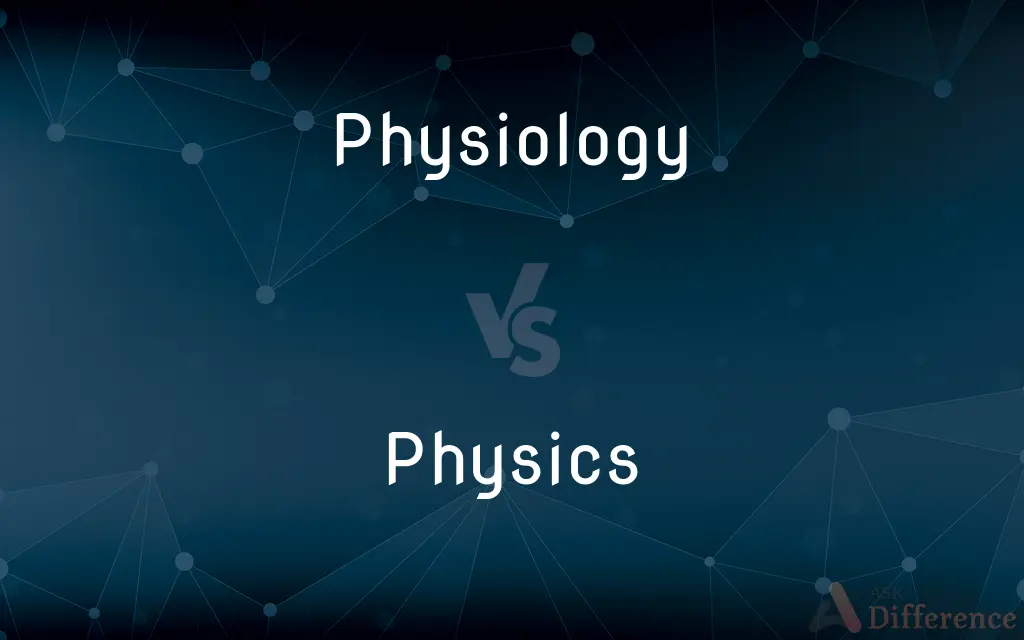Physiology vs. Physics — What's the Difference?

Difference Between Physiology and Physics
ADVERTISEMENT
Compare with Definitions
Physiology
Physiology (; from Ancient Greek φύσις (physis) 'nature, origin', and -λογία (-logia) 'study of') is the scientific study of functions and mechanisms in a living system. As a sub-discipline of biology, physiology focuses on how organisms, organ systems, individual organs, cells, and biomolecules carry out the chemical and physical functions in a living system.
Physics
Physics (from Ancient Greek: φυσική (ἐπιστήμη), romanized: physikḗ (epistḗmē), lit. 'knowledge of nature', from φύσις phýsis 'nature') is the natural science that studies matter, its motion and behavior through space and time, and the related entities of energy and force. Physics is one of the most fundamental scientific disciplines, and its main goal is to understand how the universe behaves.Physics is one of the oldest academic disciplines and, through its inclusion of astronomy, perhaps the oldest.
Physiology
The biological study of the functions of living organisms and their parts.
Physics
(used with a sing. verb) The science of matter and energy and of interactions between the two, grouped in traditional fields such as acoustics, optics, mechanics, thermodynamics, and electromagnetism, as well as in modern extensions including quantum mechanics, relativity theory, cryogenics, solid-state physics, particle physics, and plasma physics.
Physiology
All the functions of a living organism or any of its parts.
ADVERTISEMENT
Physics
(used with a pl. verb) Physical properties, interactions, processes, or laws
The physics of supersonic flight.
Physiology
A branch of biology that deals with the functions and activities of life or of living matter (as organs, tissues, or cells) and of the physical and chemical phenomena involved.
Physics
(used with a sing. verb) Archaic The study of the natural or material world and phenomena; natural philosophy.
Physiology
(obsolete) The study and description of natural objects; natural science.
Physics
The branch of science concerned with the study of the properties and interactions of space, time, matter and energy.
Newtonian physics was extended by Einstein to explain the effects of travelling near the speed of light; quantum physics extends it to account for the behaviour of atoms.
Physiology
The science which treats of the phenomena of living organisms; the study of the processes incidental to, and characteristic of, life.
Physics
The physical aspects of a phenomenon or a system, especially those studied scientifically.
The physics of car crashes would not let Tom Cruise walk away like that.
Physiology
A treatise on physiology.
Physics
Plural of physic
Physiology
The branch of the biological sciences dealing with the functioning of organisms
Physics
The science of nature, or of natural objects; that branch of science which treats of the laws and properties of matter, and the forces acting upon it; especially, that department of natural science which treats of the causes (as gravitation, heat, light, magnetism, electricity, etc.) that modify the general properties of bodies; natural philosophy.
Physiology
Processes and functions of an organism
Physics
The science of matter and energy and their interactions
Share Your Discovery

Previous Comparison
Gorget vs. Bevor
Next Comparison
Meme vs. Trope













































